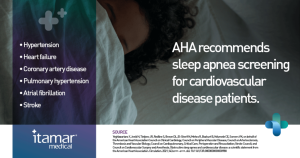
Maxillomandibular advancement (MMA) surgery and obstructive sleep apnea (OSA)
Obstructive sleep apnea (OSA) can have a devastating effect on patients’ health and quality of life, and its prevalence has dramatically increased in recent years.1

Obstructive sleep apnea (OSA) can have a devastating effect on patients’ health and quality of life, and its prevalence has dramatically increased in recent years.1

Based on recent research, an estimated 936 million people globally between the ages of 30 to 69 have mild to severe obstructive sleep apnea (OSA).1

The negative impact of poor sleep has become all but common knowledge among patients let alone medical and dental health professionals. Decades of research have

Optimal management of OSA may be considered to reduce AF incidence, progression, recurrences, and symptoms. Screening for AF should be considered in patients with OSA

CPAP Reduces Long-Term Cardiovascular Risk in Patients with Obstructive Sleep Apnea Multiple lines of research show patients with moderate to severe obstructive sleep apnea are

Gestational diabetes can have short- and long-term consequences for the health of the mother and the fetus. Mothers are more likely to experience preeclampsia during

2021 AHA Recommendations on Obstructive Sleep apnea The American Heart Association released a new Scientific Statement on Obstructive Sleep Apnea (OSA) and Cardiovascular Disease on

Sleep-disordered breathing and heart failure appear to have a bidirectional relationship.1 Obstructive sleep apnea is an independent risk factor to develop heart failure2. Of patients

Central sleep apnea is common among patients with chronic heart failure with reduced left ventricular ejection fraction (HFrEF), affecting about a third of patients.1,2 Indeed,

On-pump vs. off-pump coronary artery bypass grafting (CABG) Off-pump CABG avoids complications that can arise with the cardiopulmonary bypass and manipulation of the aorta. Thus,